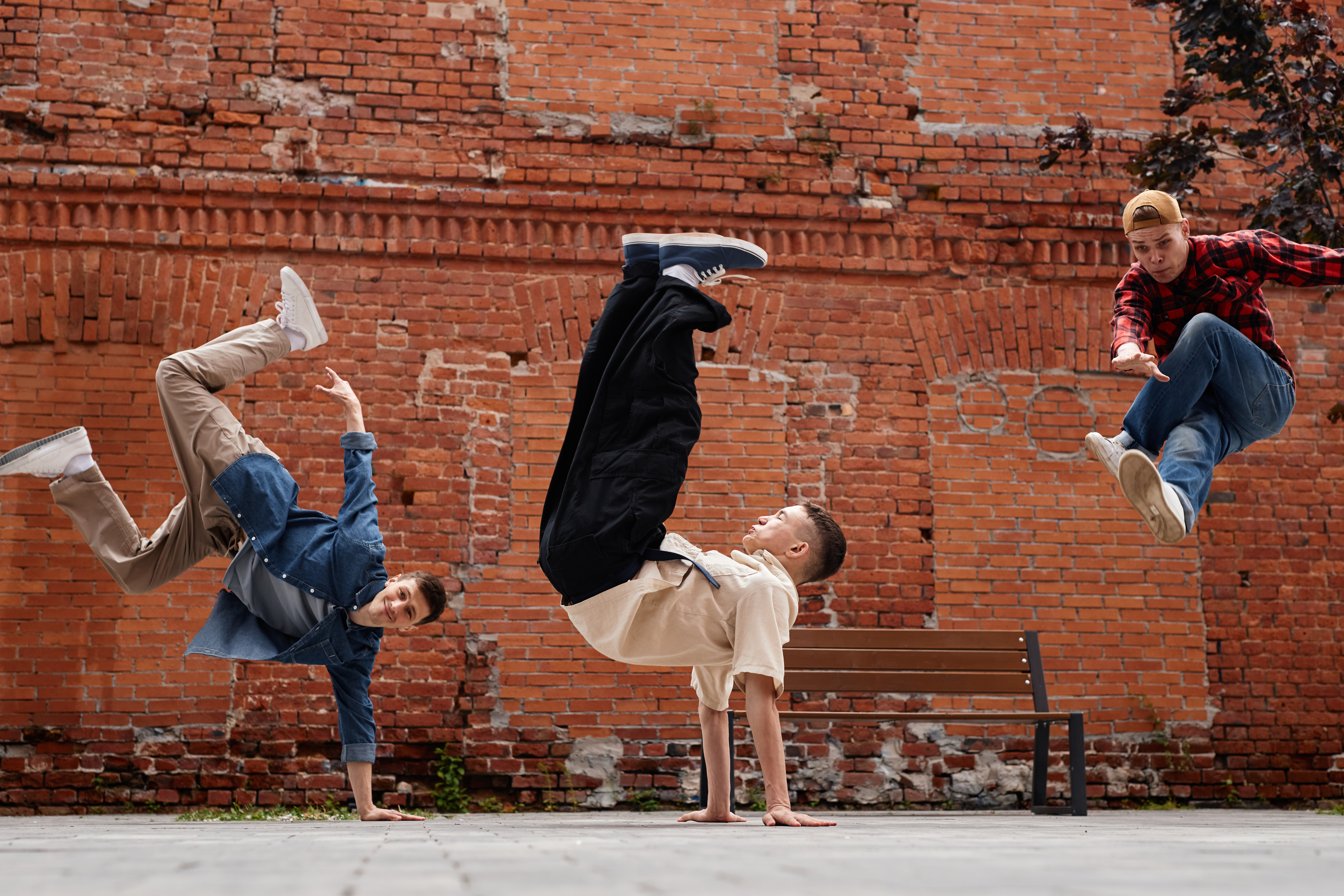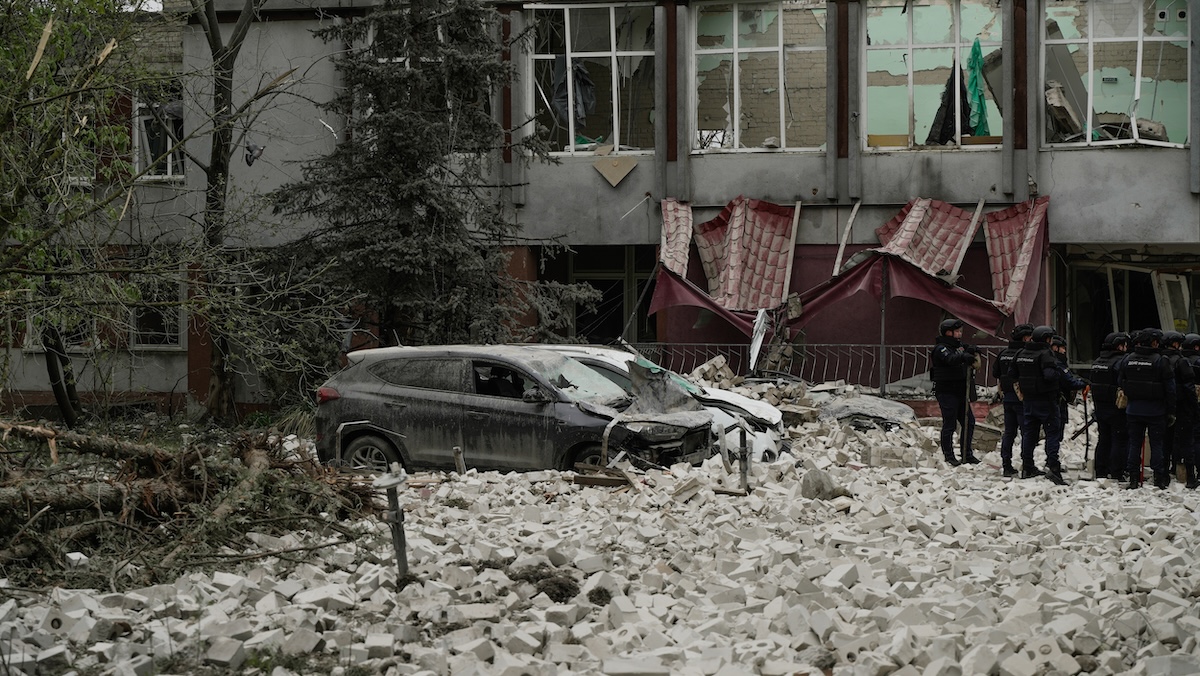UNITED NATIONS - Under increasing attack over Iran's suspected nuclear weapons program, President Mahmoud Ahmadinejad told the U.N. General Assembly on Wednesday that Tehran was ready to meet conciliation with conciliation.
Ahmadinejad spoke to a half-empty chamber as he sought to cast himself as a beleaguered champion of the developing world, that he portrayed as under attack from rapacious capitalism.
At the same time, the Iranian leader issued stinging attacks on the United States and its allies without calling them by name, prompting a walkout by the U.S. delegation.
Ahmadinejad did not mention the uproar over Iran's nuclear program, calling instead for global nuclear disarmament.
Moments before he spoke, foreign ministers of six global powers told reporters on the sidelines of the General Assembly that they expect Iran to come clean about its nuclear program. Tougher sanctions against Iran are being considered if talks between the powers and Iran on the issue, set for Oct. 1, don't yield results.
Religious references
At times, Ahmadinejad struck a softer tone, declaring that Tehran was "prepared to warmly shake all those hands which are honestly extended to us." He said Iran is committed to participate in building durable peace and security worldwide, while defending its legitimate and legal rights.
The Iranian leader also peppered his speech with religious references, invoking the prophets of Judaism and Christianity, as well as Islam.
U.S. & World
The day's top national and international news.
Yet most of the speech focused on his usual themes — scathing verbal attacks on archenemy Israel and the West.
He assailed Israel for what he said was a "barbaric" attack on the Gaza Strip last winter, and condemned the U.S.-led wars in Afghanistan and attacks inside Pakistan. He also accused the West of hypocrisy, saying it preached democracy, but violated its fundamental principles.
Ahmadinejad portrayed Iran as a defender of poor countries, lashed out at unbridled capitalism which he said has reached the end of the road and will suffer the same fate as Marxism.
Turning to domestic affairs, Ahmadinejad insisted he won a "large majority" in what he described as a "glorious and fully democratic" June elections. Pro-reform opposition politicians have alleged massive electoral fraud, and Ahmadinejad has been at the center of political turmoil since then.
Many seats in the hall were empty during the speech, and some delegates got up midway through. The U.S., Israel and Canada were among those that boycotted the speech, in protest against his persistent denial of the Holocaust.
Obama’s time on world stage
Earlier in the day, President Barack Obama exhorted world leaders who once accused the United States of acting alone to now join with him in solving global crises rather than wait for America to do it on its own.
In his first address to the U.N. General Assembly, Obama sought to set a new tone in U.S. relations, moving away from the unilateralism of his predecessor, George W. Bush. He coupled conciliatory words about a "new era of engagement" with a summons for other nations to shoulder more of the burden.
"Those who used to chastise America for acting alone in the world cannot now stand by and wait for America to solve the world's problems alone," Obama said.
"Now is the time for all of us to take our share of responsibility for a global response to global challenges."
Obama said past policies and a perception of unilateralism by the United States had fed "an almost reflexive anti-Americanism" that too often was used as an excuse for inaction.
"The time has come for the world to move in a new direction," Obama said before a U.N. chamber packed with more than 100 of his global counterparts.
The president offered a litany of policy changes and actions his administration had undertaken during his first nine months in office, with the overarching message that the United States has no interest in a go-it-alone stance and instead wants to act as an equal partner with others on the world stage.
"In an era where our destiny is shared, power is no longer a zero-sum game," Obama said. "No world order that elevates one nation or group of people over another will succeed."
Obama was among the world leaders following U.N. Secretary-General Ban Ki-moon to the podium. Ban challenged world leaders to cleanse the globe of nuclear weapons, tackle the threat of catastrophic climate change and combat growing poverty from the global financial crisis.
The U.N. chief warned presidents, prime ministers and diplomats from the U.N.'s 192 member states that "no nation, large or small, can violate the human rights of its citizens with impunity."
Also among the speakers were Russian President Dmitry Medvedev, China's President Hu Jintao and Japan's newly elected Prime Minister Yukio Hatoyama.
Gadhafi applauds
Obama received hearty applause when he entered the room, from even the likes of Libyan leader Moammar Gadhafi, and his address was interrupted several times by polite applause. Iranian President Mahmoud Ahmadinejad did not join in the applause.
Gadhafi addressed the General Assembly immediately after Obama, but White House aides made sure the two leaders would not cross paths. Tensions with the Libyan leader are high in the wake of Scotland's recent release of Libyan Abdel Baset al-Megrahi, who was convicted of the 1988 bombing of Pan Am Flight 103, in which 270 people died.
In his first U.N. appearance, Gadhafi issued a slashing attack on the Security Council and chastised the world body for failing to intervene or prevent some 65 wars since the U.N. was founded in 1945.
"It should not be called the Security Council, it should be called the "terror council," he said.
In his speech, Obama summoned fellow leaders to do their part to address a long list of global challenges: to help bring about a nuclear weapons-free world, to increase security from terrorists and promote peace between Israelis and Palestinians, to tackle climate change and to create more economic opportunity. In essence, Obama's message was that he expects plenty in return for reaching out.
"If we are honest with ourselves," he told world leaders, "we need to admit that we are not living up" to the shared responsibility to meet such challenges.
"Extremists sowing terror in pockets of the world," Obama said. "Protracted conflicts that grind on and on; genocide; mass atrocities; more nations with nuclear weapons; melting ice caps and ravaged populations; persistent poverty and pandemic disease."
"I say this not to sow fear, but to state a fact: The magnitude of our challenges has yet to be met by the measure of our actions," Obama said.
Peace plans
He said that Iran and North Korea must be held accountable if they continue to put their pursuit of nuclear weapons ahead of international security.
"The world must stand together to demonstrate that international law is not an empty promise and that treaties will be enforced," he said.
Obama has said the door is open to Iran to discuss the issue, but that U.S. patience is not limitless. He has taken the same position with respect to the reclusive communist regime in North Korea.
Seeking to build on his three-way meeting in New York on Tuesday with Israeli and Palestinian leaders, Obama urged nations aligned with either side to join the cause of advancing Mideast peace — by speaking honestly to Israelis about Palestinian's legitimate claims and to Palestinians and Arab nations about Israel's right to exist.
"All of us must decide whether we are serious about peace, or whether we only lend it lip-service," Obama said. "To break the old patterns, to break the cycle of insecurity and despair all of us must say publicly what we would acknowledge in private."
On the warming planet, Obama said "the danger posed by climate change cannot be denied — and our responsibility to meet it must not be deferred."
The president said he understood the temptation of nations to put economic recovery ahead of efforts to address climate change, but said that must not be allowed to happen.
'New rules of the road'
Ahead of the G-20 meetings of industrial and developing nations that Obama is hosting later this week in Pittsburgh, he lobbied for stronger financial regulations — "new rules of the road" — to prevent future economic calamities. Momentum for such changes has fallen off as the economy appears to be limping back to health.
While Obama's summons for world leaders to work together is hardly new, it is sharper because of the political context. Obama follows Bush, who at times questioned the U.N.'s toughness and credibility, particularly in containing Iraq's Saddam Hussein.
The president started his day with his first meeting with the new Japanese prime minister, Yukio Hatoyama, who has said he wants to shift Japan's diplomatic stance from one that is less centered on Washington's lead.
The president later placed a wreath of hydrangeas near a plaque honoring U.N. workers killed around the world and attended a meeting with leaders of governments contributing peacekeepers to U.N. missions around the globe. In a lunchtime toast, Obama echoes themes of his speech and told leaders that "days like this are for renewed hope."
Obama was meeting later in the day with Russia's Medvedev. That session comes just days following Obama's decision to abruptly scrap a Bush-era missile defense plan that Russia deeply opposed, swapping it for a proposal the U.S. says better targets any launch by Iran.
The Associated Press and Reuters contributed to this report.
More on: United Nations



